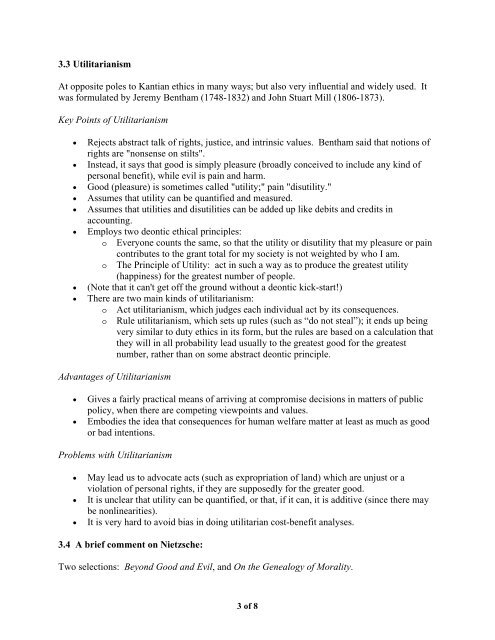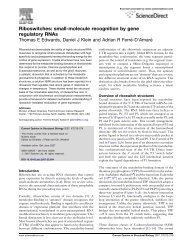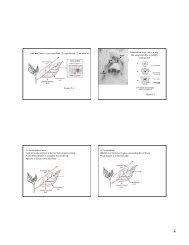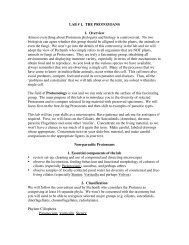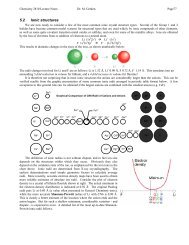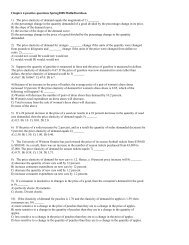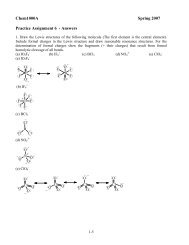Chap. 4: How Can I Know What Is Right? - University of Lethbridge
Chap. 4: How Can I Know What Is Right? - University of Lethbridge
Chap. 4: How Can I Know What Is Right? - University of Lethbridge
Create successful ePaper yourself
Turn your PDF publications into a flip-book with our unique Google optimized e-Paper software.
3.3 Utilitarianism<br />
At opposite poles to Kantian ethics in many ways; but also very influential and widely used. It<br />
was formulated by Jeremy Bentham (1748-1832) and John Stuart Mill (1806-1873).<br />
Key Points <strong>of</strong> Utilitarianism<br />
• Rejects abstract talk <strong>of</strong> rights, justice, and intrinsic values. Bentham said that notions <strong>of</strong><br />
rights are "nonsense on stilts".<br />
• Instead, it says that good is simply pleasure (broadly conceived to include any kind <strong>of</strong><br />
personal benefit), while evil is pain and harm.<br />
• Good (pleasure) is sometimes called "utility;" pain "disutility."<br />
• Assumes that utility can be quantified and measured.<br />
• Assumes that utilities and disutilities can be added up like debits and credits in<br />
accounting.<br />
• Employs two deontic ethical principles:<br />
o Everyone counts the same, so that the utility or disutility that my pleasure or pain<br />
contributes to the grant total for my society is not weighted by who I am.<br />
o The Principle <strong>of</strong> Utility: act in such a way as to produce the greatest utility<br />
(happiness) for the greatest number <strong>of</strong> people.<br />
• (Note that it can't get <strong>of</strong>f the ground without a deontic kick-start!)<br />
• There are two main kinds <strong>of</strong> utilitarianism:<br />
o<br />
o<br />
Act utilitarianism, which judges each individual act by its consequences.<br />
Rule utilitarianism, which sets up rules (such as “do not steal”); it ends up being<br />
very similar to duty ethics in its form, but the rules are based on a calculation that<br />
they will in all probability lead usually to the greatest good for the greatest<br />
number, rather than on some abstract deontic principle.<br />
Advantages <strong>of</strong> Utilitarianism<br />
• Gives a fairly practical means <strong>of</strong> arriving at compromise decisions in matters <strong>of</strong> public<br />
policy, when there are competing viewpoints and values.<br />
• Embodies the idea that consequences for human welfare matter at least as much as good<br />
or bad intentions.<br />
Problems with Utilitarianism<br />
• May lead us to advocate acts (such as expropriation <strong>of</strong> land) which are unjust or a<br />
violation <strong>of</strong> personal rights, if they are supposedly for the greater good.<br />
• It is unclear that utility can be quantified, or that, if it can, it is additive (since there may<br />
be nonlinearities).<br />
• It is very hard to avoid bias in doing utilitarian cost-benefit analyses.<br />
3.4 A brief comment on Nietzsche:<br />
Two selections: Beyond Good and Evil, and On the Genealogy <strong>of</strong> Morality.<br />
3 <strong>of</strong> 8


